Bitland Global: Updates on South Africa, Mauritius, Nigeria, Uganda, Ethereum Compatibility
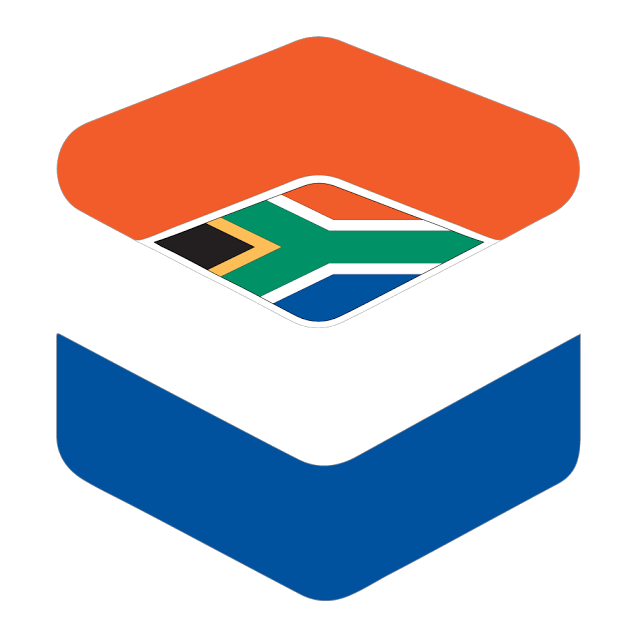
Dr. Ariel Lashansky and Rashid Owoyele have been hard at work getting the Bitland project rolling in South Africa. Working with the "Healthiest Village" and "Transekt", which are partnering with Bitland Global to extend our efforts into the Transkei Region in South Africa.



It is a tremendous honor to be able to have Rashid work on the Bitland Project to bring it to South Africa. I also was fortunate to meet up with him in Berlin while presenting Bitland to the Fincluders Start-up Challenge
Rashid has come on board the Bitland project to bring his experience in Socially Minded Design so that Bitland ground operations are always paying attention to the most nuanced details of what each culture represents so we do not destroy their ideals or impose any ideologies that do not work with theirs. Rashid works tirelessly to ensure that cultures with rich histories get preserved and do not suffer destruction due to mindless gentrification. There is a major responsibility to ensure that we actively preserve these cultures, and Rashid has been the perfect addition to help Bitland do this around the world.
"Our vision is to serve as an organizational platform which amplifies an ecosystem of social innovators with a focus on human-centered, open, and reverse innovation. Let us show you what can be done."
Rashid has started "Transekt" which is his organization that looks to help businesses assess their impact and help them reorganize to leave positive lasting impact through innovation and education. He worked with Dr. Lashansky to formulate ethical approaches to building communities in the former Transkei region.
Rashid went to do an on-site assessment, as Dr. Lashansky has been in the region working with the villagers to get innovation centers, farms, and youth soccer centers built. They have been using recycled materials, and have been working to ensure they are following the most ethical standards and practices they possibly can.
Recently, Dr. Lashansky filed and succeeded in registering Bitland in South Africa. At this point, Dr. Lashansky has been successful in utilizing the Cadastral token to bring investment into the villages to start building. They are in the process of starting the irrigation system for the first South African Farm that is funded by Bitland protocol. As well, Bitland is working to help the Healthiest Village fund the youth center and get that finished as quickly as possible.
















http://www.healthiestvillage.org/
https://www.instagram.com/p/BUZLDiPAGJT/?taken-by=thehealthiestvillage
https://www.instagram.com/p/BRuwKAigjP4/?taken-by=thehealthiestvillage
https://www.instagram.com/thehealthiestvillage/
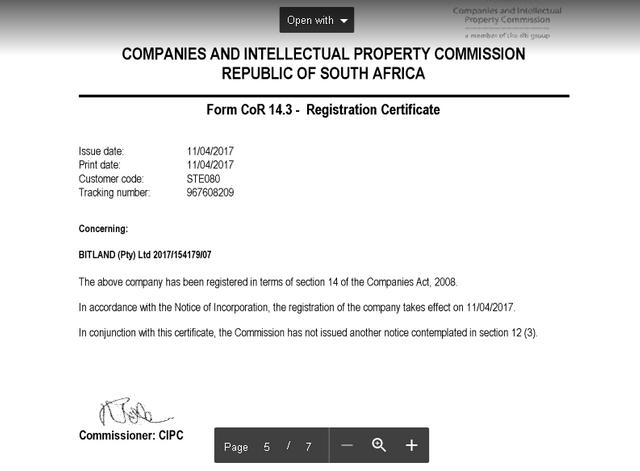
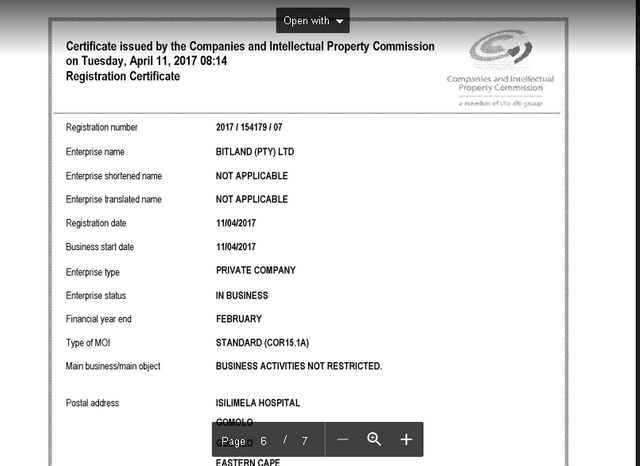
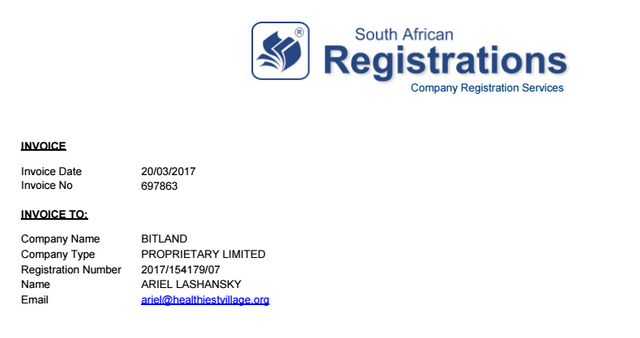
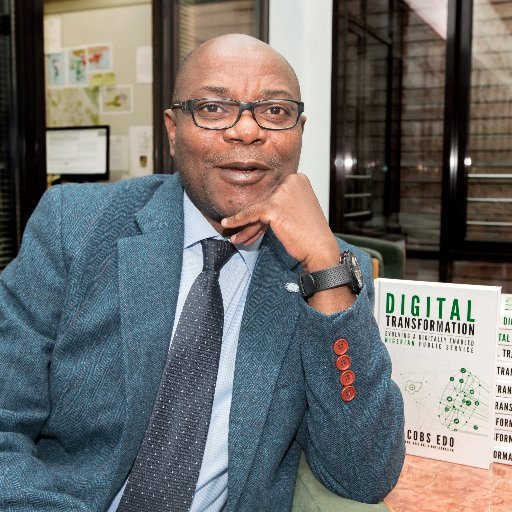
https://en.wikipedia.org/wiki/Jacobs_Edoite_Edo
Jacobs Edo is one of the Nigerian leaders representing Bitland. He has released his book "Digital Transformation" and will be doing a book release in Abuja, Nigeria. The book features Bitland's Ghana pilot as an example of what could be applied in Nigeria. His book and a plan for Nigeria will be presented to the Nigerian government for review in August.
"Jacobs Edoite Edo has been System Coordinator for the OPEC Fund for International Development since 2010.[8][9] He notable for his work in enterprise systems architecture including design, implementation, upgrades, enhancements and support since over a decade"
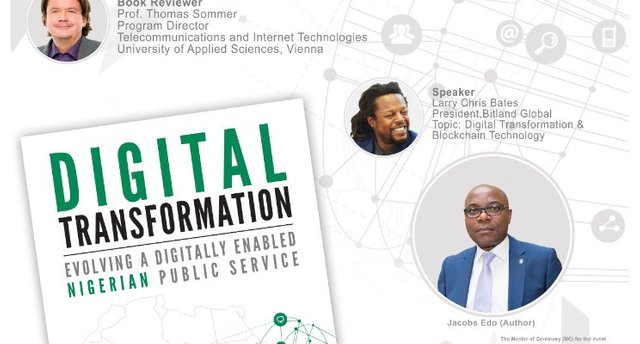
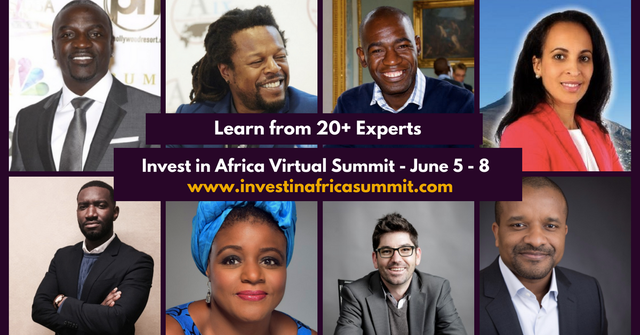
Edgar Mwambutsa CEO of CoinPesa exchange will be leading efforts to take Bitland into Uganda. Edgar will look to help Bitland onboard large scale real estate clients to prepare a Ugandan Pilot to present to the government. If the government approves the Ugandan pilot, then Edgar will present the project to the Hague Institute for Innovating of Law to get sponsorship.
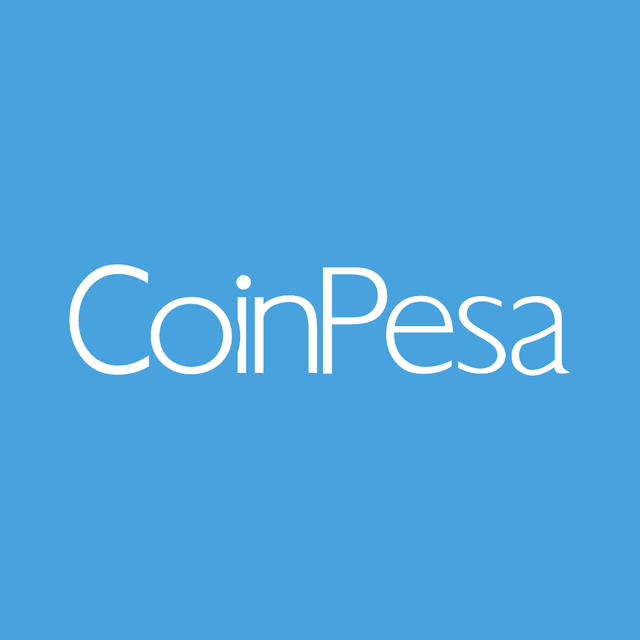
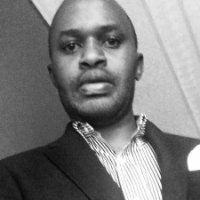

Mr. Prakash Bheekhoo will be taking the first video drone surveys in Mauritius. With the first client Avalan Golf Estate being worth over $150 million, Mr. Bheekhoo has positioned Bitland to start taking on high valued clients in the likes of Dubai. His longstanding reputation as a telecommunications genius has put Mr. Bheekhoo in a position to catapult Bitland forward in the high value real estate world.
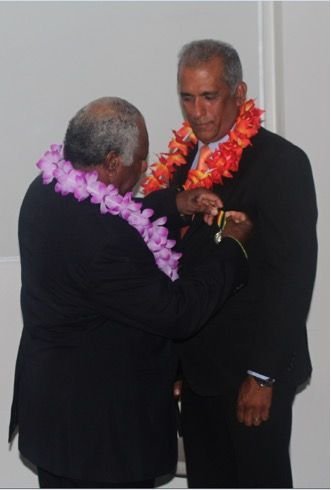
(Mr. Bheekhoo shown being awarded the general service medal of Vanuatu)

Elliot Hedman COO speaking at Office Expo 2017 in Ireland. Elliot has been working on connecting with the Irish market in order to establish stronger ties for the Bitland team.
Having been the author of the Decentralized Conglomerate theory, one of the reasons that Bitland decided to go with Bitshares platform was because the team did not believe Ethereum was not yet ready in 2016. We went so far as to publicly express our concerns with the DAO structure concerning the "code is law" approach, and were on record doing so.
As the Ethereum Enterprise Alliance has formed, the Bitland team has decided that it is now time to add Ethereum compatibility to the platform. We will be discussing further details, but below is the Decentralized Conglomerate theory that was written and released last year in tandem with CCEDK and OpenLedger.
As Bitland looks to build quantum resistant platforms, we are using multiple blockchains and multiple access control mechanisms to establish a stronger ecosystem.
As we develop more, we will release more information about the coming changes to protocol.
References-
Decentralized Conglomerate Theory
Posted on June 3, 2016 by Amith Nirgunarthy
"‘As individuals, digital leaders work in much the same way as a chief financial officer (CFO), a director of human resources or a chief operations officer (COO) works; they need to assure all interested parties that the assets for which they are responsible maintain maximum value. The executive who is exercising digital leadership is doing something that every other person in the C-suite is dependent upon. CFOs cannot do their jobs well if they do not have reliable digital information. Directors of human resources cannot make good hiring decisions if their systems allow false applications for jobs to be submitted without verification of credentials and capabilities. COOs can’t run the plant well if they’re not getting reliable input on the raw materials being delivered.’
And this, for the DAO, is the kicker: how do decision-makers – that is, everyone – ensure they really do have what they need to make the right call? That means not only information, but judgement and experience. ‘If the information can be trusted, if it is reliable and if it is authentic, business decisions are made faster and are more likely to be trusted because of the quality of the information upon which decisions were based.’
This, Bates suggests, will give DCs an inherent advantage over DAOs. ‘A DC has business records, and a unified mission goal driving information analysis. A DC will evolve much faster, and be much more agile than a DAO,’ he explains. ‘With a DAO, there is no organized effort for all the capital, so it goes in different directions based on a “democratic” vote.’
The bottom line: a democratic system will often end up benefiting everyone equally – by benefiting no one at all. In the evolutionary environment of the market, it won’t take long to learn which is the more profitable and sustainable approach."
"The DAO crisis has not yet come to an end as of the writing of this paper, and updates will be made to reflect the long term outcomes of that scenario. It is impossible to predict the outcome of any set of variables, however it is a responsibility of those who control capital to make effective and efficient use of the capital. This requires being informed about the history of capital, and how politics, war, science, art, literature, education, humanitarianism and countless other variables affect capital. It is an imperfect science that by proxy the practitioners must continue to strive towards an unachievable perfection. If decentralization is to properly be applied in a global economy, the application must be not only informed, but agile and able to evolve. Reaching a state of stasis is contradictory to the natural imperative of evolution. In effect, survival is a matter of constantly evolving whether in the context of nature or in the context of commercial industries.
Institutional memory becomes an imperative when it comes to keeping a unified organizational evolution moving. An example of institutional memory would be “Congress” or the “Supreme Court” in the United States government. The idea was that instead of having agnostic principles that were to have authority over a specific set of rules or actions, democracy would be applied to congress to decide a group of elected officials that would attempt to balance the desires of the people against the knowledge of the institutional memory of congress.
In the case of the Supreme Court, the idea is that a group of officials that are appointed by an elected official to represent balanced views of the country will also retain the institutional memory necessary to make informed decisions about establishing new rules and laws. In this context, having institutional memory reduces the necessity of retreading debates and theoretically is an attempt to move debate forward with the knowledge of everything that has occurred previously.
When DAO theory was emerging, the concept of Digital Leadership had not quite been articulated, and the theoretical foundation of the DAO was ultimately rooted in a MoH that created a leaderless system where organizations were to function based around goals and objectives that were agreed upon, rather than the decision of a specific individual or group. Many attempts at creating DAOs have been attempted, with the recent Slockit DAO being the largest on record. While the Slockit DAO was the largest, the success of the project is debatable depending on what metric of “success” is being discussed.
Bitshares token could be considered one of the more successful DAO projects that utilizes a combination of Proof of Stake security with colored coin protocol to allow organizations to receive the benefits of decentralized security, and the benefits of having a centralized currency and platform. The ability for colored coins to be easily converted within the UI for bitshares makes access to any asset listed on the market equal. The result is that organizations have incentive to create their own representative asset knowing that there is a centralized platform that makes exchange for other assets easy and cost effective.
Beyond remittance payments, organizational control of capital becomes a new opportunity for capital to become more efficiently used in the context of the global economy. Removing the resistance for capital to flow means that it can go from the least needed to the most needed areas, and in the process generate new capital rather than stagnate against inflation. In the context of thermos-economics, resting capital can be seen as “potential energy”, and capital that is being used is “kinetic energy”. If the global economic machine is to accelerate, it needs to convert the potential energy into kinetic energy as efficiently as possible.
Efficiency with capital should be agnostic in the global economy. This is where a new paradigm of “Decentralized Conglomerates” apply thermos-economic theory in attempt to create an economic “Dynamo” that makes most effective use of balancing potential and kinetic energy. If a “reserve fund” is seen as a “battery” that turns kinetic energy into potential energy for storage, then creating a dynamo that has the correct number of “batteries” stored away to power the dynamo during phases in which the machine is not transforming any potential energy into kinetic becomes an agnostic principle that pays no regard to political party, religious affiliation, or special interest group.
While this ideal state may seem unattainable, it is clear that attempting to achieve these goals will require a transitional period. During this transition, digital leadership must be employed to ensure that the capital does not go to waste. The DAO debacle shows the possibility that complete absence of Digital Leadership can result in a complete waste of potential energy with no resulting kinetic energy in the dynamo. It may be possible that a completely leaderless system is not desirable. Regardless, the DC makes an attempt at striking a balance between applying digital leadership and giving autonomy to special interest groups within the DC. The team at OpenLedger believes the Decentralized Conglomerate can be the economic engine that helps pilot the globe into the paradigm of the future."
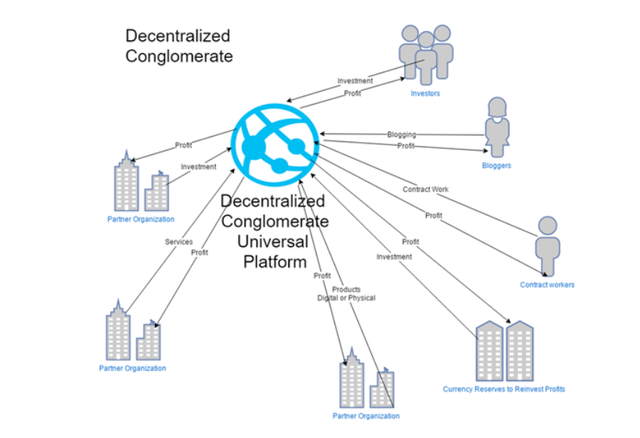
http://www.coindesk.com/dao-attacked-code-issue-leads-60-million-ether-theft/
https://steemit.com/akon/@chris-bates/invest-in-africa-virtual-summit-featuring-akon
https://www.academia.edu/27773745/Decentralized_Conglomerate_White_Paper
https://www.ccedk.com/dc/white-paper
http://officeexpo.ie/speaker/elliot-hedman-chief-operating-officerbitland-global-us/
Congratulation to all the team. I love the new logo.
Information, judgement and experience are all intrinsic. To me, above all of these, is the focus on Education. Sounds Corny, but it's truly the foundation of success
I could not agree more! People need access to information to be able to make sound decisions. We need to have education at the core focus of society.
Very impressed with these developments!
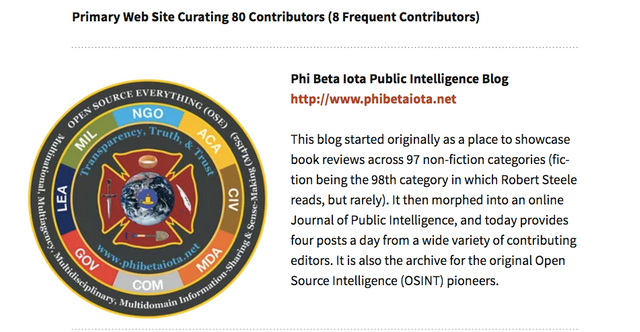
keep up the great work. Will reshare @phibetaiota to show support.
~The Management
NICE.
Hi, I've seen some of your publications I'm going to follow, follow me and let's collaborate together =)